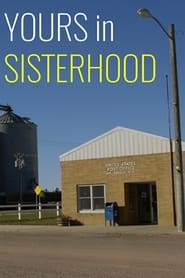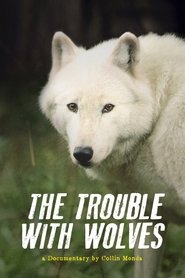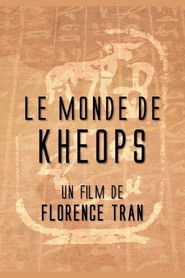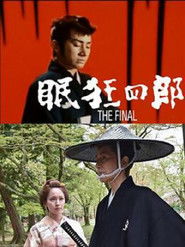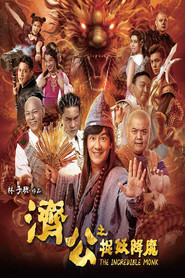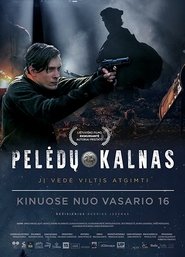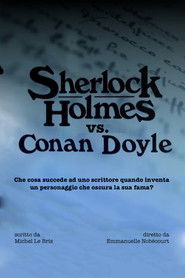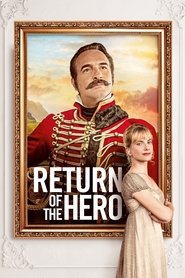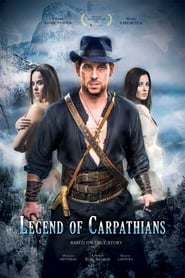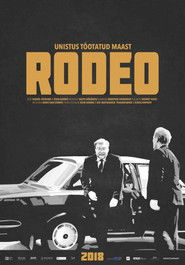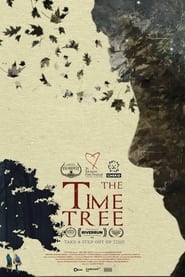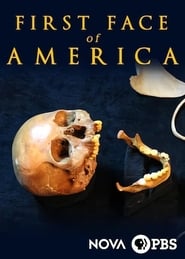New History Movies on Tub Tv - Page 292
-
Yours in Sisterhood
2018
Yours in Sisterhood
2018
star 4.2What might be revealed in the process of inviting strangers to act out and respond to 1970s feminism forty years later? Between 2015 and 2017, hundreds of strangers in communities all over the US were invited to read aloud and respond to letters from the 70s sent to the editor of Ms. Magazine–the first mainstream feminist magazine in the US. The intimate, provocative, and sometimes heartbreaking conversations that emerge from these spontaneous performances make us think critically about the past, present, and future of feminism. -
Rubens: A Life in Europe
2018
The Flemish painter, humanist and diplomat Peter Paul Rubens (1577-1640) was fortunate to be recognized during his lifetime as an artist of genius and one of the most prolific among his peers, making him a key figure of the Baroque. -
Anne Morgan, une Américaine sur le front
2018
Between 1917 and 1924, 350 Americans landed in France to participate in the immense reconstruction effort. At their head, Anne Morgan, daughter of the famous banker John P. Morgan and founder of the American Committee for Devastated Regions. To encourage donations in the USA, she commissioned numerous films and photos, admirable testimonies of life at that time. Entirely made up of audiovisual and photographic archives, this documentary plunges us into an embodied and living post-war period as we have rarely seen it. -
The Trouble with Wolves
2018
Death threats, court battles, and an iconic endangered species in middle, The Trouble With Wolves takes an up close look at the most heated and controversial wildlife conservation debate of our time. The film aims to find out whether coexistence is really possible by hearing from the people directly involved. -
SPK Complex
2018
SPK Complex
2018
star 6.2The anti-psychiatric Socialist Patients' Collective (SPK) was founded in Heidelberg in 1970 and attributed individual suffering to society’s capitalist structures. It began as a self-organised experiment in group therapy led by doctor Wolfgang Huber with psychiatric patients, featuring Hegel readings and individual agitation, before subsequently radicalizing, which ended in criminal proceedings against its members, some of whom went underground with the Red Army Faction. -
Le monde de Khéops
2018
-
The Incredible Monk
2018
The Incredible Monk
2018
star 1The movie takes Ji Gong on another adventure as he fights demons to save the people. It was a time of peace as word of Ji Gong's limitless powers has spread throughout the land and no demon, ghost nor evilbeing dares to wreak havoc except for the water demon that occasionally causes trouble by way of flooding the river. One day, the water demon gathers other forces to create a tsunami that threatens that threatens to engulf everything on its way. Ji Gong steps up to save the day, but realizes that a bigger conspiracy is in the works. -
Owl Mountain
2018
Owl Mountain
2018
star 8Radio Free Europe, BBC, and Voice of America can only rarely get through the Iron Curtain and Soviet mufflers to Lithuania, a country torn by a war between the local resistance movement and the Soviet regime that is forced onto Lithuanian people by bayonets of the Russian army. Everybody who tries to resist the Soviet rule is either terrorized or executed or exiled to Siberia. He is one of the local high-school students who witness the local armed resistance to the Soviet occupation and ultimately decide to join it by taking a gun into their hands. He collects documents and all possible kinds of evidence that prove daunting crimes of the Kremlin. He soon becomes a legend among his peers. To girls, he is John Wayne the Hollywood Icon. Guys see him as an insurmountable obstacle and an invincible rival in matters of love. -
Sherlock Holmes Against Conan Doyle
2018
star 7.4130 years after he was created, Sherlock Holmes is a literary character who exceeded his author's expectations and is known throughout the world. Find out the true story behind the author, Conan Doyle, and his struggle to come to terms with the phenomenon that is Sherlock Holmes. -
Return of the Hero
2018
Return of the Hero
2018
star 6.3France, 1809. Captain Neuville is called to the front, leaving his future bride heartbroken. Her sister decides to write letters on his behalf to cheer her up. -
Legend of Carpathians
2018
star 5.5As Carpathian legend has it, Oleksa Dovbush was a heroic outlaw with excellent fighting skills and a gift to predict the future. He was left an orphan as a small boy after a local lord murdered Oleksa's mother. After spending his childhood in exile in the mountains, he returned as a grown man to avenge his mother's death. Oleksa gathered followers to begin a crusade against the lord, but destiny made other plans for him. -
Hitler's England
2018
Hitler's England
2018
A spotlight on an often forgotten episode in British history: Nazi Germany's occupation of the British Channel Islands. -
The Demon Law
2018
The Demon Law
2018
star 10During the prosperous years, the evil spirits were rampant. The imperial court specially set up the demon organization "Demon Demon", and each member needs to drink the demon blood to fight against the demon. However, if you can't do your... -
Julius Caesar Revealed
2018
star 8Mary Beard is on a mission to uncover the real Julius Caesar, and to challenge public perception, exploring Caesar's surprising legacy. -
Charles I's Treasures Reunited
2018
Brenda Emmanus explores the art collection of Charles I, much of which is being reunited for a unique exhibition for the first time since his execution. Brenda hears the stories behind the works of art and learns how the collection was sold off by Parliament following Charles's death. -
Rodeo
2018
Rodeo
2018
star 6.8A documentary exploring the difficulties the newly-independent Estonia faced in the early 1990s after emerging from decades of Soviet rule. The film focuses especially on then-32-year-old and inexperienced Mart Laar, who became country's prime minister while there still were tens of thousands of Soviet soldiers in the country. -
A Passage Through the Light ~Maximilien Robespierre, the Revolutionary~
2018
star 7The story of the transformational Maximilien Robespierre is of a man fueled by a burning passion for revolutionary ideals that eventually engulfed him in their flames. -
The Time Tree
2018
The Time Tree
2018
1596. Anne, a deaf girl, bullied by the maids and mistresses who look after her, finds solace when she comes across a magical tree: a portal to the present, where she meets Jo and Rachel, who help her overcome her disability in a way she could never have imagined. -
NOVA: First Face of America
2018
star 7.4During risky expeditions in an underwater cave in Mexico, scientists unearth the skeleton of a 13,000-year-old prehistoric teenager to gain insight into the earliest known humans in America.
 Netflix
Netflix
 Amazon Prime Video
Amazon Prime Video
 Apple iTunes
Apple iTunes
 Apple TV Plus
Apple TV Plus
 Disney Plus
Disney Plus
 Google Play Movies
Google Play Movies
 Paramount Plus
Paramount Plus
 Hulu
Hulu
 HBO Max
HBO Max
 YouTube
YouTube
 fuboTV
fuboTV
 Peacock
Peacock
 Peacock Premium
Peacock Premium
 Amazon Video
Amazon Video
 The Roku Channel
The Roku Channel
 AMC+
AMC+
 Kocowa
Kocowa
 Hoopla
Hoopla
 The CW
The CW
 Vudu
Vudu
 Starz
Starz
 Showtime
Showtime
 PBS
PBS
 Pantaflix
Pantaflix
 FXNow
FXNow
 Tubi TV
Tubi TV
 Kanopy
Kanopy
 Comedy Central
Comedy Central
 Crunchyroll
Crunchyroll
 Microsoft Store
Microsoft Store
 Redbox
Redbox
 Sun Nxt
Sun Nxt
 ABC
ABC
 DIRECTV
DIRECTV
 Crackle
Crackle
 Fandor
Fandor
 Plex
Plex
